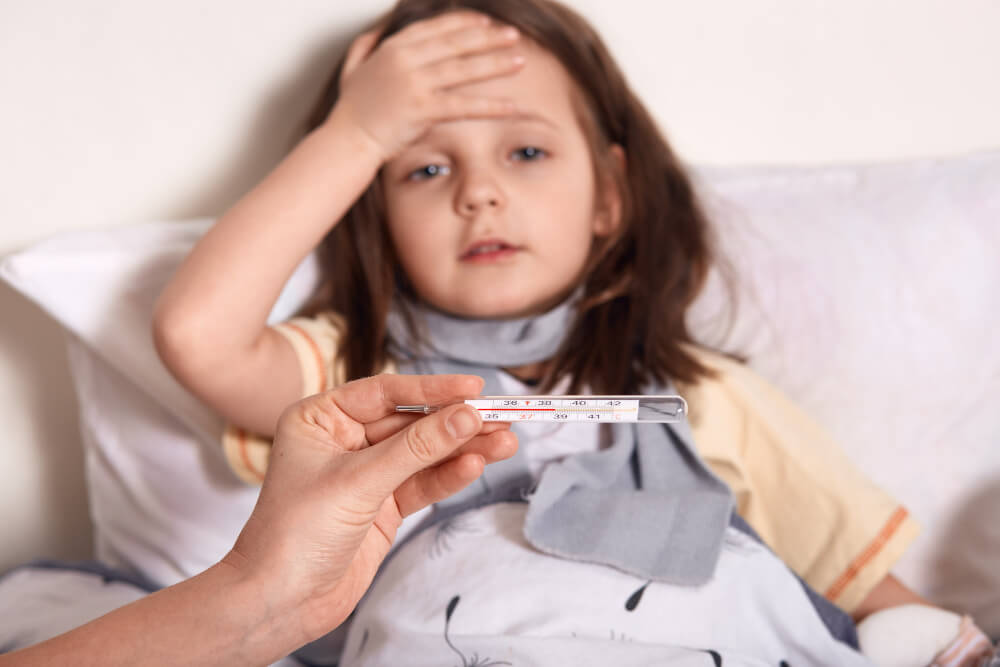RSV: The Sneaky Winter Woe Wreaking Havoc on Littles (and Adults!)
As the crisp autumn air arrives, so too does the concern for respiratory illnesses, especially for parents of young children. Among these seasonal foes, Respiratory Syncytial Virus (RSV) often takes center stage. Nicknamed “the croup monster” for the characteristic cough it can cause, RSV is a highly contagious respiratory virus that primarily affects infants and young children, but can also pose a threat to adults.
This article delves into the world of RSV, exploring its characteristics, how it spreads, who’s most vulnerable, and most importantly, how to protect yourself and your loved ones, especially the precious little ones.

Unveiling the Culprit: What is RSV?
RSV is a common respiratory virus belonging to the paramyxovirus family. It’s the leading cause of lower respiratory tract infections (LRTIs) in infants and young children worldwide. Unlike influenza (the flu), RSV doesn’t have a single season and can circulate year-round, though outbreaks typically peak during the fall and winter months in temperate regions.
There’s no single strain of RSV, but different subtypes can emerge each season. This, coupled with the virus’s ability to mutate, means a previous RSV infection doesn’t guarantee lifelong immunity. Reinfections can occur, although subsequent infections are usually milder.
Sneaky Symptoms: Recognizing RSV Infection
RSV symptoms can vary depending on the age and overall health of the infected person. In infants and young children, symptoms often start with a runny nose and mild cough, progressing to:
- Congestion
- Wheezing (a high-pitched whistling sound during breathing)
- Difficulty breathing (rapid or labored breathing)
- Fever (may be low-grade or high)
- Decreased appetite
- Fussiness or irritability
While these symptoms can mimic a common cold, RSV can progress more rapidly and become more severe in infants, especially those with underlying health conditions.
In older children and adults, RSV symptoms are often milder and resemble the common cold, including:
- Runny or stuffy nose
- Cough
- Sore throat
- Mild headache
- Sneezing
- Low-grade fever
It’s important to note that RSV can sometimes present with no symptoms at all, particularly in adults. However, these asymptomatic individuals can still spread the virus to others.
Who’s Most at Risk for Serious RSV Complications?

While anyone can contract RSV, certain groups are at higher risk for developing severe complications, including:
- Infants under 6 months old: Premature infants and those with congenital heart disease or chronic lung conditions are particularly vulnerable.
- Children with chronic health conditions: Conditions like asthma, cystic fibrosis, or weakened immune systems can increase the severity of RSV infection.
- Adults 65 and older: As we age, our immune response weakens, making us more susceptible to serious complications.
- Adults with chronic health conditions: Underlying conditions like heart disease, chronic obstructive pulmonary disease (COPD), or weakened immune systems put adults at higher risk.
Protecting Your Precious Peeps: Strategies for Preventing RSV
Unfortunately, there’s no vaccine currently available for RSV. However, several strategies can significantly reduce the risk of infection, especially for vulnerable populations:
- Frequent Handwashing: This is crucial to prevent the spread of RSV, similar to other respiratory viruses. Wash your hands thoroughly with soap and water for at least 20 seconds, especially after being in public places, changing diapers, or blowing your nose.
- Avoid Close Contact with Sick People: Limit contact with individuals exhibiting RSV symptoms, such as coughing or sneezing.
- Clean and Disinfect Surfaces: Regularly clean and disinfect surfaces that are frequently touched, such as doorknobs, toys, and countertops.
- Minimize Smoke Exposure: Secondhand smoke irritates the lungs and can worsen RSV symptoms.
- Breastfeeding: Breastfeeding provides infants with antibodies that can help protect them from RSV infection.
When to Seek Medical Attention for RSV
If your child experiences any of the following symptoms, seek immediate medical attention:
- Difficulty breathing (rapid or labored breathing)
- Inability to eat or drink
- Listlessness or extreme fussiness
- Bluish tint around the lips or fingernails
- High fever (especially in infants under 3 months old)
Early diagnosis and treatment can significantly improve outcomes and prevent complications.
Battling the Bug: Managing RSV Symptoms
There’s no specific cure for RSV. However, supportive care focuses on managing symptoms and making your child feel more comfortable. This may include:
- Hydration: Encourage plenty of fluids to prevent dehydration, especially if your child has a fever or vomiting.
- Over-the-Counter Medications: Medications like acetaminophen or ibuprofen can help manage fever and discomfort.
